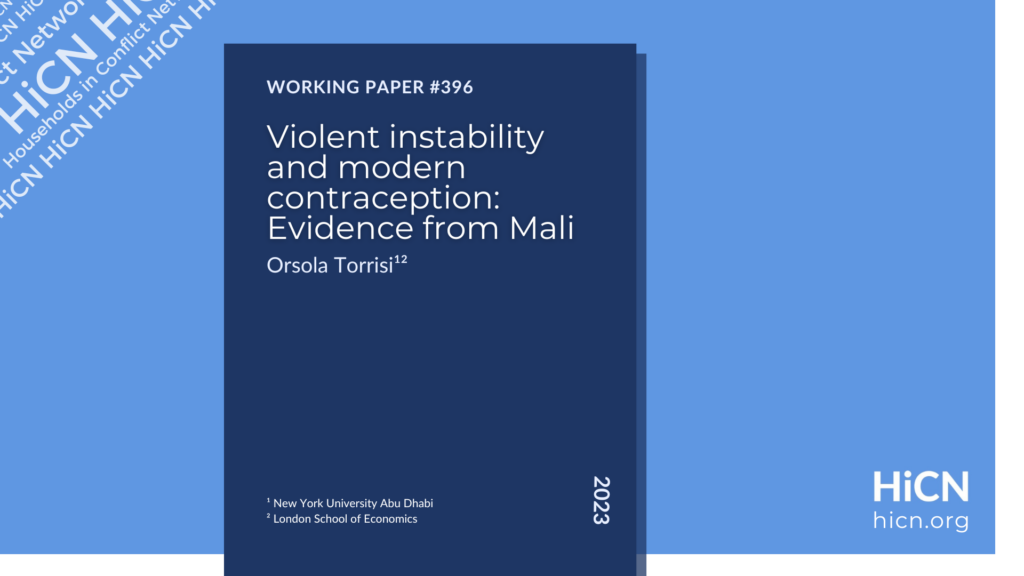
This study examines the consequences of armed violence on sexual and reproductive health in Mali, a country where modern contraceptive use (MCU) is low and a violent insurrection has been ongoing since 2012. I combine data from the 2006 and 2018 Demographic and Health Surveys with information on conflict events location and exploit spatial and temporal variation in violence intensity to investigate changes in women’s and men’s MCU associated with the insurrection. Results indicate that conflict violence is associated with reductions in MCU, particularly short-acting methods. Further, the insurrection is linked to increases in current unwanted pregnancies and women’s intention to use contraception. Analyses of potential mechanisms suggest that, for women, the slowdown in MCU can be partially attributed to diminished knowledge about where to obtain contraception. For men, the insurrection is simultaneously related to a downward shift in fertility preferences and an upward shift in sexual activity, perhaps also signalling some ‘supply-side’ unmet needs for male-controlled methods. Findings further suggest that where violence was most intense, the conflict undermined women’s reproductive autonomy. Provision of modern contraception remains a priority in humanitarian settings. To be meaningful, interventions should consider both women’s and men’s needs and integrate a gender perspective into their design.